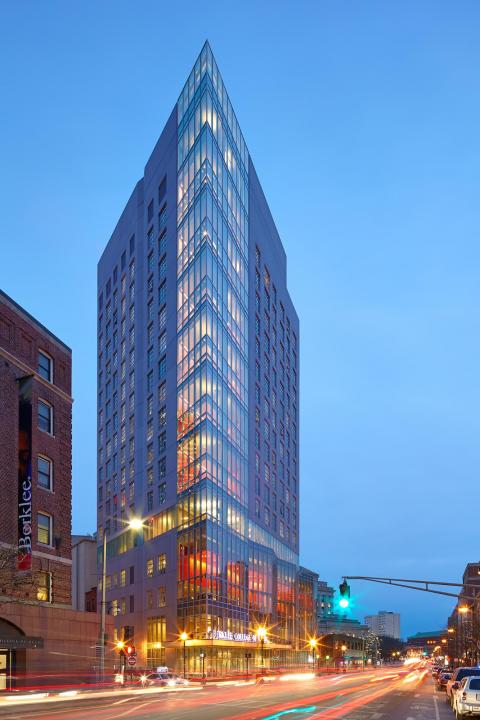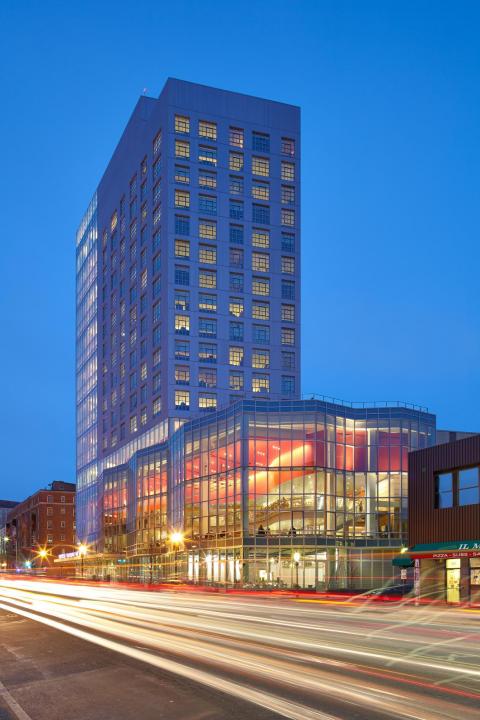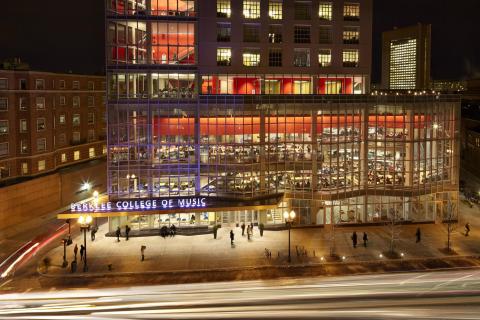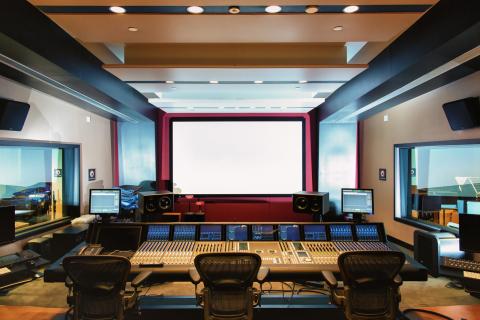Berklee's 160 Massachusetts Avenue Building Earns LEED Gold Certification

160 Massachusetts Avenue, photographed from the north
Bruce T. Martin

160 Massachusetts Avenue, photographed from the south
Bruce T. Martin

A view of the 160 Massachusetts Avenue cafeteria/performance space
Bruce T. Martin

The dub stage inside 160 Massachusetts Avenue
Mike Spencer
The U.S. Green Building Council (USGBC) has awarded Berklee's 160 Massachusetts Avenue building LEED (Leadership in Energy and Environmental Design) Gold certification, a "green building" distinction recognizing sustainability, energy efficiency, and environmental best practices.
Opened in January 2014, 160 Massachusetts Avenue is the college's first ground-up, custom-built facility, housing 369 students. Designed by William Rawn Associates, and constructed by Lee Kennedy Company with Rist-Frost-Shumway Engineering serving as the mechanical, electrical, and plumbing engineer, the residence hall also boasts 23 practice rooms, six two-story common areas, a fitness center, an outdoor roof terrace, and a 400-seat dining hall that doubles as a performance space. Below street level, the building also features a 14,000-square-foot music production complex that is among the largest of its kind in the United States, designed by Walters-Storyk Design Group.
"From the beginning, Berklee saw this project as not only a way to add important new facilities to its campus, but as a way to make a contribution locally," said William L. Rawn III, founding principal at William Rawn Associates. "The main performance space along Massachusetts Avenue is perhaps Berklee's most visible such contribution to the city, but Berklee's commitment to sustainability will also help this building to contribute to Boston for years to come."
Berklee was able to invest in certain innovative sustainability features due in part to a generous financial contribution by Pamela Kohlberg, parent of an alumnus, and her husband, Curt Greer, helping 160 Massachusetts Avenue achieve its LEED Gold certification. LEED Gold certification is awarded to projects for implementing practical and measurable strategies and solutions aimed at achieving high performance in sustainable site development, water savings, energy efficiency, materials selection, and indoor environmental quality. One such feature in Berklee’s building is the installation of copper coils around the shower drains for a process called drain water heat recovery. When hot water goes down the drains, the copper coils recover that heat, warming the incoming cold fresh water supply. This reduces the need to use natural gas to heat water for use in the building.
"With each new LEED-certified building, we get one step closer to USGBC's vision of a sustainably built environment within a generation," said Rick Fedrizzi, president, CEO, and founding chair, U.S. Green Building Council. "As the newest member of the LEED family of green buildings, 160 Massachusetts Avenue is an important addition to the growing strength of the green building movement."
LEED is the foremost program for the design, construction, and operation of green buildings. More than 44,000 projects are currently participating in the commercial and institutional LEED rating systems, comprising over 8 billion square feet of construction space in all 50 states and 120 countries.
Liz Lupton is a manager of media relations. Media inquiries: llupton@berklee.edu.
